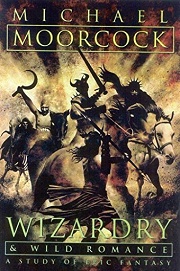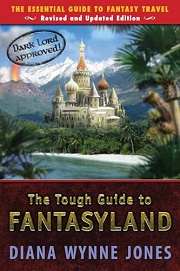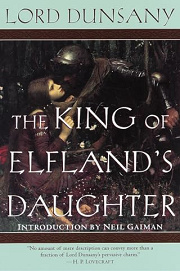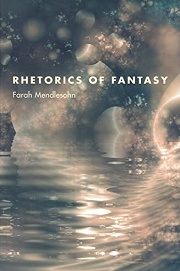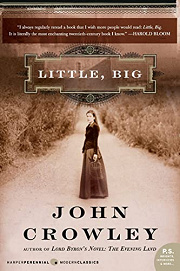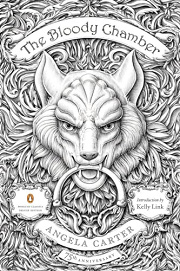Share your thoughts in a quick Shelf Talk!
Wizardry and Wild Romance by Michael Moorcock
Critic, novelist, and genre icon Michael Moorcock takes a sharp, passionate tour through fantasy’s roots and rebellious heart. In witty, provocative essays, Wizardry and Wild Romance challenges clichés, celebrates risk-takers, and invites you to see the genre’s wildest possibilities with fresh eyes.
Have you read this book? Share what you liked (or didn’t), and we’ll use your answers to recommend your next favorite read!
Love Wizardry and Wild Romance but not sure what to read next?
These picks are popular with readers who enjoyed this book. Complete a quick Shelf Talk to get recommendations made just for you! Warning: possible spoilers for Wizardry and Wild Romance below.
In Wizardry and Wild Romance, did you enjoy ...
... acerbic, insider deconstruction of fantasy clichés and “epic Pooh” worldbuilding?
The Tough Guide to Fantasyland by Diana Wynne Jones
If Moorcock’s gleeful skewering of comfy faux-medieval tropes made you grin, you’ll love how The Tough Guide to Fantasyland turns a travel handbook into a razor-edged field guide to quests. Entries like “Dark Lord,” “LEATHER BIKINI,” “Leaning on the Sword Hilt,” and “SCENERY” read like punchlines to the very patterns he lambasts, and the mock itinerary of your Tour is as revealing as any essay—funny, furious, and exact about why these defaults flatten wonder.
... opulent, musical prose that treats magic as true romance rather than mere plot fuel?
The King Of Elfland's Daughter by Lord Dunsany
If what captivated you was the celebration of rich, incantatory language in high fantasy, Dunsany’s The King of Elfland’s Daughter is the pure wellspring. From Alveric’s moon-silver sword to Lirazel’s aching exile from Elfland, every sentence sings. Scenes like the Parliament of Erl demanding "magic" and Orion’s hunts across the border of Elfland embody that older, stranger romance Moorcock champions—where style conjures enchantment as powerfully as any spell.
... a clear-eyed taxonomy of how fantasy works on the page—what it permits, withholds, and reveals?
The Rhetorics of Fantasy by Farah Mendlesohn
If you relished the sharp, idea-rich anatomy of fantasy’s effects, Mendlesohn’s Rhetorics of Fantasy gives you a rigorous map. She parses immersive, intrusive, portal, and liminal modes, then tests the framework against works like The Lord of the Rings, The Chronicles of Narnia, and Perdido Street Station. It’s the kind of precise, reflective reading that satisfies the same itch as Moorcock’s polemics—only with a typology you can immediately use to rethink your shelves.
... a self-aware fairy tale that contemplates its own storytelling, without breaking the spell?
Little, Big by John Crowley
If you were drawn to arguments about romance as a mode and stories aware of their artifice, Little, Big is a marvel. Smoky Barnable’s marriage into the Drinkwater family at Edgewood unfolds as a book that knows it is a book about fairy—cards are read, prophecies curl back on themselves, and Auberon’s tale threads through nested histories. Crowley’s narrative winks at its own patterns while deepening the enchantment, a feat Moorcock would call rare and worth savoring.
... lush, concentrated retellings that interrogate myth and romance in gemlike episodes?
The Bloody Chamber by Angela Carter
If you appreciated tightly focused, essay-like forays that rethink fantasy’s old furniture, Carter’s The Bloody Chamber delivers that intensity in fiction. In “The Bloody Chamber,” the young bride’s forbidden key unlocks a chamber of wives—and a rescue that rewrites agency. “The Tiger’s Bride” and “The Company of Wolves” recast romance and monstrosity in blazing, sensual prose. Each story is a self-contained argument, as precise and provocative as a chapter you’d underline.
Unlock your personalized book recommendations! Just take a quick Shelf Talk for Wizardry and Wild Romance by Michael Moorcock. It’s only a few questions and takes less than a minute.
